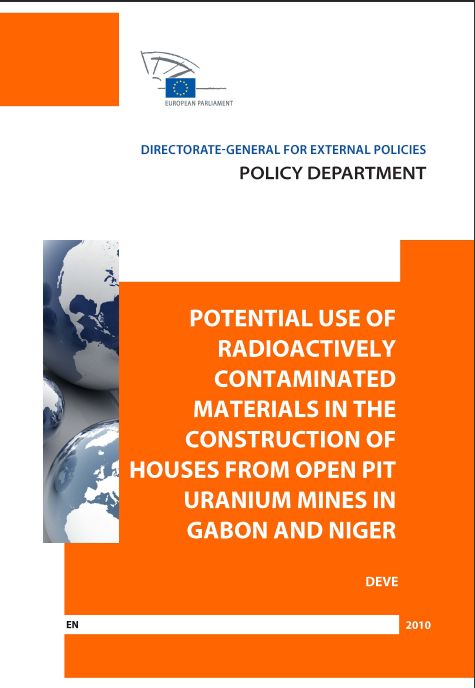In their study “Potential use of radioactively contaminated mining materials in the construction of residential homes from open pit uranium mines in Gabon and Niger” for the European Parliament, Tanja Srebotnjak and Sebastian Veit analyse the pollution of local environments, the known use of radioactively contaminated construction materials originating from old uranium mines in Gabon and Niger, and their impact on human health. The study examines the practices used in the exploration of uranium and the process of elimination and storage of contaminated materials.
The study “Potential use of radioactively contaminated mining materials in the construction of residential homes from open pit uranium mines in Gabon and Niger” is based on interviews with experts, civil society organisations, medical staff, and government officials from the field trip to Gabon, as well as other sources, e.g., The Extractive Industries Transparency Initiative (EITI), Greenpeace International, The Commission for Independent Research and Information on Radioactivity (CRIIRAD), and others.
Furthermore, Tanja Srebotnjak and Sebastian Veit investigate whether practices are in line with national or international legal requirements. To protect people from the harmful effects of radiation the World Health Organization (WHO) and many national governments have established guidelines and regulations on the maximum permissible short-term and annual exposure of individuals. The United Nations Scientific Committee on the Effects of Atomic Radiation (UNSCEAR) is a widely used reference for information on the management and health effects of radioactivity in emergencies, in the environment, at the workplace, and inside the home. A few standards for workers protection, environmental quality and emergency management plans have been applied in both Niger and Gabon. However, an assessment of the extent to which these standards were applied, implemented and reinforced was not at the core of this study.
In sum, the study indicates that despite some positive effects from uranium exploration and exploitation (such as infrastructure development and income generation), it has posed, and continues to pose, risks to the health of the local population and environment.
The project was part of the Framework Contract Development Policy.



